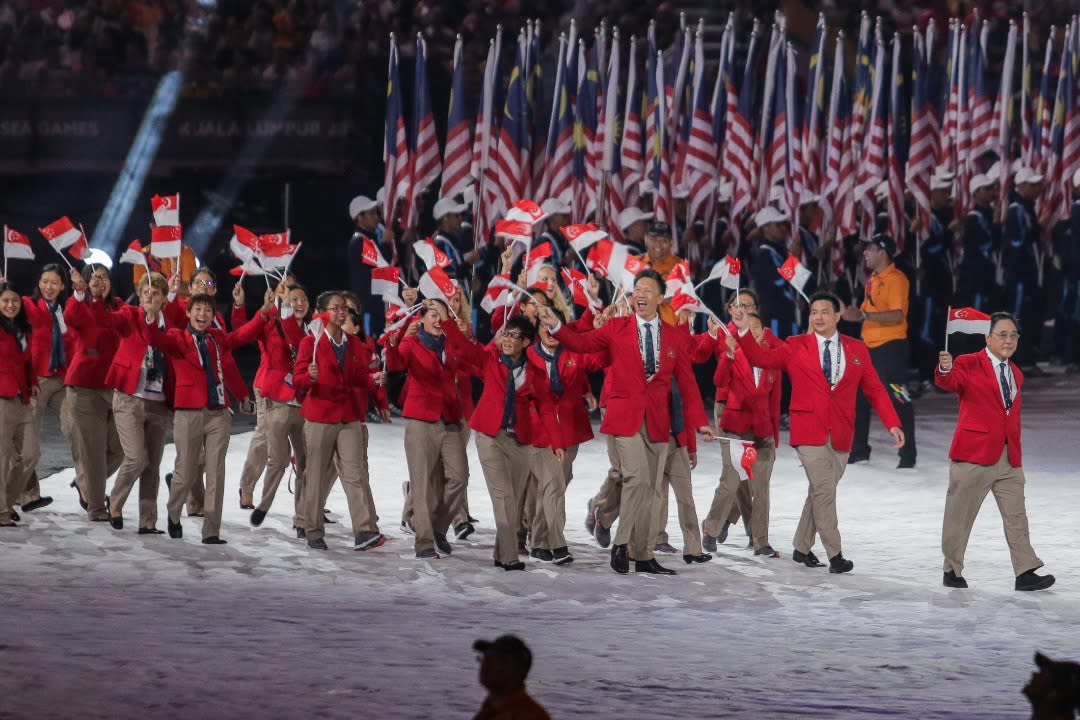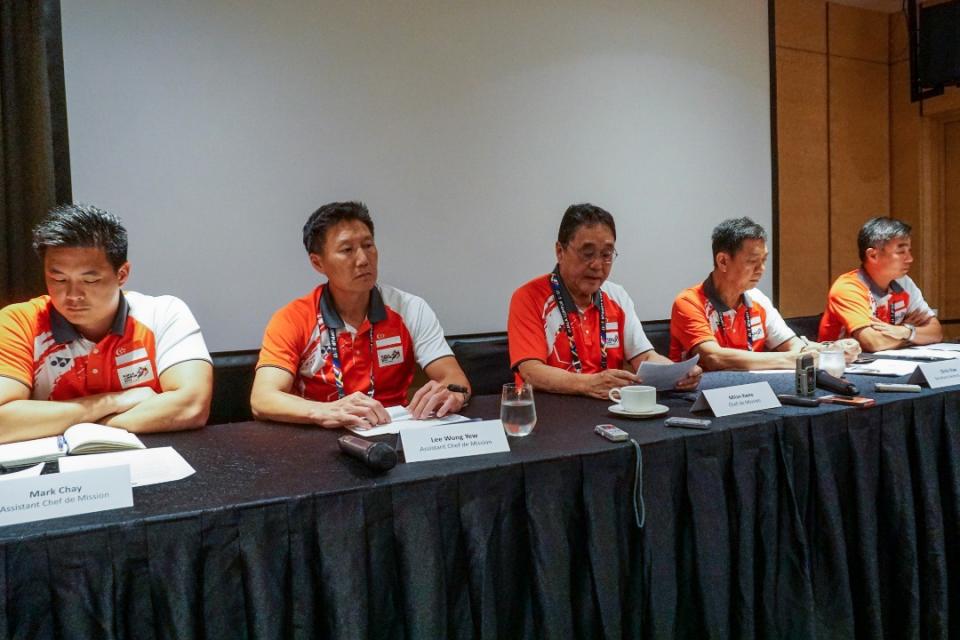SEA Games: Team Singapore gets A- grade; football and athletics 'can do better'

Team Singapore concluded its 2017 SEA Games campaign in Kuala Lumpur with a record “away” medal haul of 57 golds, 58 silvers and 73 bronzes.
The tally was its best showing since the 2007 SEA Games in Korat, Thailand, which reaped 43 gold, 43 silver and 41 bronze medals. It is also the second best performance compared with the 2015 edition in Singapore.
Singapore finished fourth overall in the medal tally, with host nation Malaysia at the top of the table. Of the total of 560 Singaporean athletes across 35 sports, 303 were debutants and 71 medalled at their first Games.
The aquatics contingent also broke its best “away” record since the 2011 SEA Games in Palembang, notching a total of 23 gold, 16 silver and 17 bronze medals in five disciplines. Debutant Teong Tzen Wei was singled out for his performance in the 50m freestyle sprint.
Team Singapore athletes also delivered historic gold medals in cycling, golf, squash and ice skating.
In addition, young athletes such as Lau Ywen, Amita Berthier, Ryan Lo and Martina Veloso showcased their potential in Olympic sports ranging from fencing and sailing to swimming and shooting.
“While the team did well, there were also improvements to be made and so we feel an ‘A-minus’ grade is befitting. We hope their results at the 29th SEA Games will be an indication of bigger things to come,” said Team Singapore’s chef de mission Milan Kwee at a media conference in Kuala Lumpur on Wednesday (30 August) before the closing ceremony.

Sports that need improvement
Singapore Sports Institute chief Toh Boon Yi singled out athletics and football as two sports that needed improvement.
“You know their performance. Are we happy about it? Obviously we’re not happy about it… there’s obviously a lot of interest in football… and we want our teams to do well. So there’s a lot of work as we go back home to continue to build football,” said Toh.
“In track and field there are 45 gold medals – this time round, we had two out of 45. If you ask me, we are certainly not pulling our weight in terms of athletics… we have to look at long-term pathway development to see whether we can do better and capture a larger market share in track and field in the SEA Games to come,” he added.
He noted that improvements do not “happen overnight” and that the process takes “multiple Games cycles”.
However, Toh singled out Dipna Lim-Prasad’s new national record in the 400m sprint and Soh Rui Yong’s defence of his marathon title, while also acknowledging the contribution of the individual athletes.
“Athletics could well take a leaf out of what swimming has done,” he said. “The onus is on all of us to help athletics raise its game, improve the system so that we have a strong pipeline of athletes.”
Two months before the SEA Games, Singapore Athletics was plagued with in-fighting, with a dispute leading to the association threatening to remove sprinter Shanti Pereira from the 4x100m relay team.
Pereira’s coach Margaret Oh told the media after Pereira’s 200m race on 23 August that her charge was “slightly” affected by the conflict – a factor which may have contributed to her failing to defend her title.
Preparing athletes for the next level
Toh said it was important to look at sports that feature at other major competitions such as the Asian Games and the Olympics.
“Just looking at the medal tally doesn’t tell the full story… if you do a deeper analysis, we are concerned about how we do at the sports with a further and higher platform like the Asian Games and Olympic Games,” he said.
Chris Chan, secretary-general of the Singapore National Olympic Council echoed Toh’s sentiments, saying, “This is one of the entry-level major Games. At the end of it all, medals don’t really mean much because in some of the competitions you only have four athletes.”
He cited the example of Cheyenne Goh who finished third of four competitors in short track speed skating and won a bronze.
“More importantly, the (National Sports Association) must look at the timings and distances, what they achieved here… we’re very happy if they do their personal best or season’s best. I’d rather look at the athletes that way,” said Chan.
When asked if the medal tally should be taken with a pinch of salt, Chan later clarified, “There’s an excitement for the SEA games that means a lot to the man in the street.
“The medal of course means something, it accentuates the victory, but this is the entry-level major Games. Many of our debutants get the opportunity to come here first before they go on to the bigger Games.”
Chan added that it was the experience of competing at their first Games that young athletes needed to “prepare them for the next level”.
Additional reporting by Fadza Ishak


